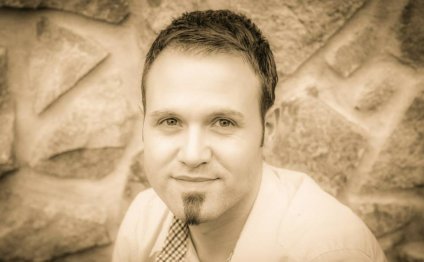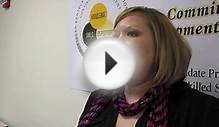
Master of Arts in Mental Health Counseling
The MA in MHC is a licensure track program designed to prepare students for a variety of counseling-centric vocations that require professional credentials. Our graduates have gone on to both private practice and positions within larger organizations. Potential fields include, but are certainly not limited to, addictions counseling, marriage and family therapy, grief counseling, sexual identity counseling, spiritual abuse counseling, and adolescent therapy. Additionally, our MA in MHC provides an excellent foundation for doctoral work in counseling psychology and related fields.
The Counseling Department of Trinity Evangelical Divinity School seeks to equip students to serve others through the ministry of counseling in vocational ministry and professional mental health settings.
Counseling Department faculty have established four major competency areas with specific learning objectives. Graduates of the Master of Arts in Mental Health Counseling program at Trinity Evangelical Divinity School will demonstrate proficiency in each area and on all objectives.
- Christian Theological Tradition and Vocational Calling
1.1. The graduate student will formulate Gospel convictions, a working Christian theology, and prepare to contextualize faith within the counseling profession and academy (Theological Tradition)
1.2. The graduate student will begin the journey of articulating how counseling process, prevention and clinical service delivery are an outgrowth of one’s Christian ministry and vocation (Vocational Calling).
1.3. The graduate student will manifest empathy and respect for how social and cultural influences as well as individual differences impact development, functioning and flourishing in diverse human persons created in the image of God (Theological Anthropology).
2. Professional Counselor Identity and Integrity
2.1. The graduate student will synthesize a routine and professional development plan to pursue an identity as a helping professional that blends self-awareness with an understanding of role expectations (Professional Counseling Orientation).
2.2. The graduate student will commit to provide all counseling services within the ethical guidelines of a professional organization (e.g. American Association of Christian Counselors, American Counseling Association, Christian Association of Psychological Studies) (Ethical Practice).
2.3. The graduate student will display to faculty and supervisors the knowledge of theories and models of counseling, counselor characteristics, and interpersonal skills to function as a helping professional (i.e. establishing a therapeutic alliance, crisis intervention, conceptualizing cases and applying relevant, evidence-based treatment approaches) (Counseling and Helping Relationships).
3. Comprehensive Knowledge of Curricular Domains
3.1. The graduate student will exhibit mastery of curricular domains within the comprehensive counseling curriculum (Human Growth and Development, Career Counseling, Group Counseling, and Assessment and Evaluation; Clinical Mental Health Foundations).
3.2. The graduate student will show competence in reading, interpreting, evaluating, and critically applying scholarly research and evaluation models in the practice of mental health counseling (Research and Program Evaluation).
3.3. The graduate student will begin to address in self, others and human systems the brokenness of human relations by identifying patterns of oppression, discrimination and bias whether deliberate or unintentional; and recognize the importance of social justice (Social and Cultural Diversity).
4. Proficiency in Communication and Clinical Skills
4.1. The counseling intern will apply the knowledge and skills required for a specialty in mental health counseling (i.e. etiology, assessment, case conceptualization, diagnostic classification procedures, application of evidence based treatments) (Clinical Mental Health Counseling Practice and Contextual Dimensions).
4.2. The counseling intern will consistently generate evidence of professional behavior, oral and written communication, treatment planning, clinical documentation and reporting (Clinical Mental Health Counseling Practice and Contextual Dimensions).
In Spring 2015 we were proud to graduate 17 students from the MHC program, 90% of whom are currently doing work in the field of mental health counseling. Additionally, 15 out of 15 of our students passed the NCE in April 2015.
A mental health counseling core is coupled with biblical and theological courses and finished off with an internship (for licensure) or capstone options for students anticipating either international work or PhD work. Your courses will include the following:
-
Biblical and Theological Foundations - 12 hours
ID 5000 Biblical Theology and Interpretation 3 hours ID 5010 Foundations in Biblical Studies 3 hours ST 5000 Survey of Doctrine 3 hours CO 6710 Counseling and Theological Worldview: Faith and Practice 3 hours -
Mental Health Counseling Core - 33 hours
CO 5210 Counseling Skills Training 3 hours CO 5400 Foundations of Mental Health Counseling 3 hours CO 5310 Counseling Theories 3 hours CO 6110 Career Counseling 3 hours CO 6130 Group Counseling 3 hours CO 6510 Personality Development 3 hours CO 6650 Multicultural Issues in Counseling 3 hours CO 6720 Ethics and Issues in Counseling 3 hours CO 7210 Assessment and Evaluation 3 hours CO 7450 Psychopathology 3 hours CO 7900 Research Methods 3 hours -
Formation Group
ID 5080 Formation Group (two semesters) 0 hoursCapstone in CP (CO 6950 is required, and select one of other three options) (6-8 hours)
CO 6950 Counseling Practicum 2 hours (1) Internship Option (Note: This is the only option leading to possible licensure.) CO 7961 Mental Health Counseling Internship I 3 hours CO 7962 Mental Health Counseling Internship II 3 hours (2) International Counseling Experience (Note: Non-licensure option; by department consent only.) CO 7969 International Counseling Experience 4 hours (3) Thesis Option CO 7905 Advanced Research Design 2 hours CO 7485 Thesis 2 hours
You’ll take courses with some of our biblical and theological studies faculty, but your main mentors will be found in our Counseling department.
View All Faculty
In addition to the requirements for general admission, you’ll need the following:
- An undergrad major that includes 9 hours of psych courses, including intro to psych, statistics, and either abnormal psych or a developmental psych course.
- An undergrad GPA of 3.0 on a 4.0 scale.
- Scores from either the Graduate Record Exam (GRE) or the Miller Analogies Test (MAT).
RELATED VIDEO


Share this Post
Related posts
Masters of Mental Health Counseling
BECOME ELIGIBLE FOR NY STATE LICENSURE AS A MENTAL HEALTH COUNSELOR For less in tuition costs than other programs! The City…
Read MoreCity College Mental Health Counseling
*Note: The program admits for the fall semester only. Total Credits: 60 GRE Required: No Minimum TOEFL/IELTS Scores: 550…
Read More











